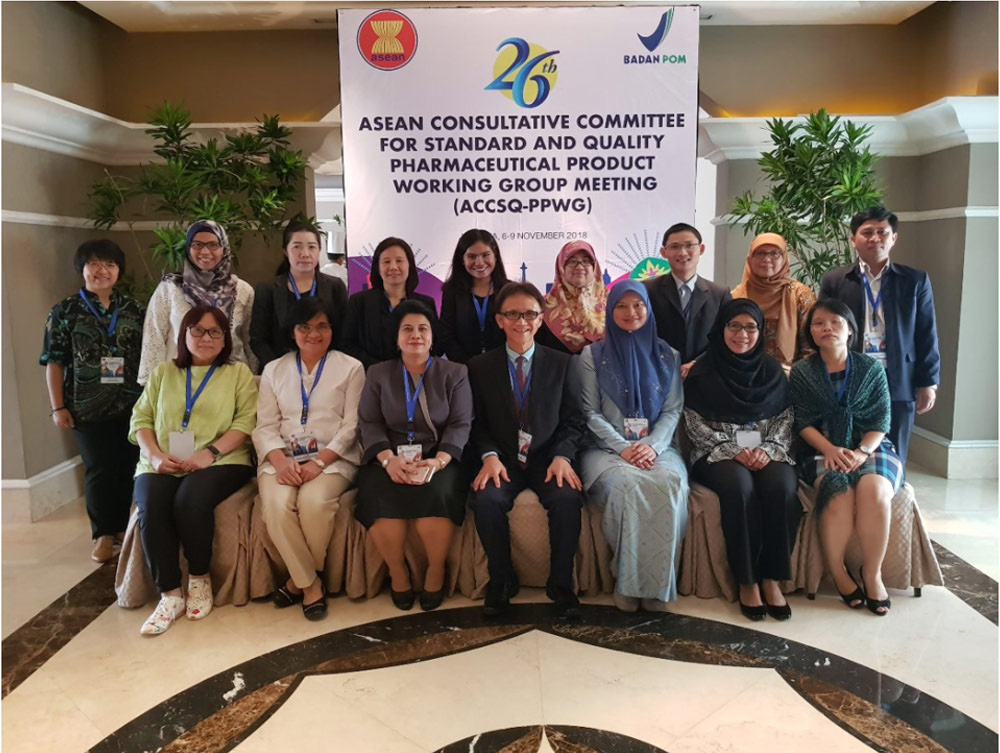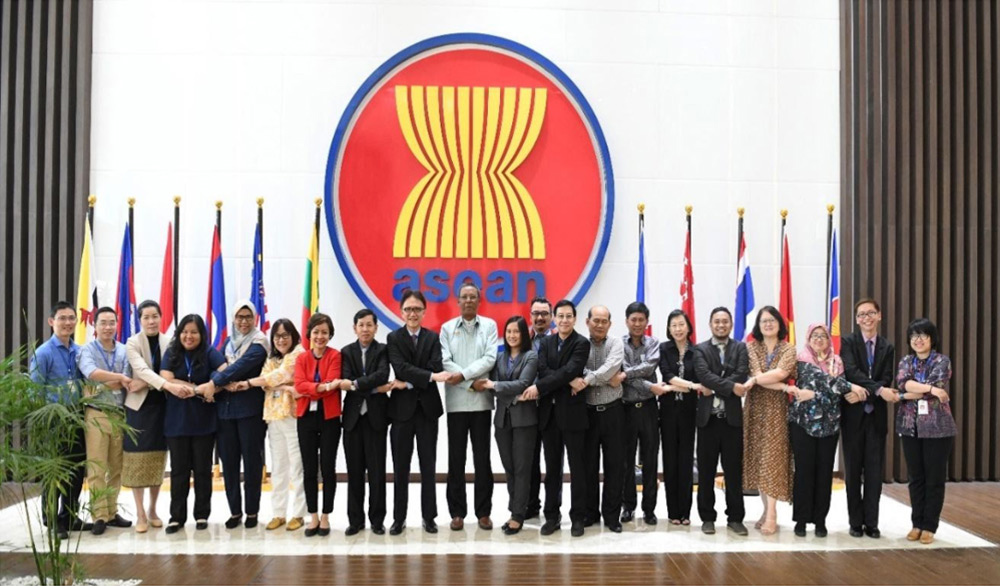Around the Globe
Health Sciences Authority (HSA), Singapore
he ten ASEAN Member States (AMS) have very diverse racial, religious, socio-cultural, political, economic, and geographical backgrounds. Each of these ten AMS faces strong economic competition from other Asian countries and the world at large, especially those with bigger geographical size and population – e.g., South Korea (50 million), Japan (130 million), the two Asian giants India (1.3 billion) and China (1.4 billion), and further away in the western world, the US (300 million) and the EU (450 million). But collectively as a ten-member group, ASEAN is not small.
ASEAN inspectorates are aware that no regulatory authority in this globalized world can work in isolation. The way forward is collaboration, collaboration, and MORE collaboration with ALL stakeholders for a win-win-win outcome: a win for these regulators, a win for the industry, and a win for patients!
A key strength of ASEAN is its combined population (and potential collective market) of ~650 million. ASEAN has a combined economy of more than $2.5 US trillion and is set to become the fourth largest world economy by 2030. This collective strength was first optimized through the creation of an ASEAN Economic Community (AEC) on December 31, 2015.
Forming ASEAN MRA Taskforce and Signing ASEAN Sectoral MRA on GMP Inspection
The ASEAN MRA on GMP Inspection is benchmarked to the international framework of the Pharmaceutical Inspection Co-operation Scheme (PICS). The MRA covered all medicinal products in finished dosage forms, and its 19 Articles include Article 4 (Scope) and Article 8 (Obligations) of the AMS. Article 4 (Scope) stipulates that the MRA covers medicinal products in finished dosage forms (both prescription medicines and over-the-counter [OTC] products) but excludes active pharmaceutical ingredients (APIs), biologics, radio-pharmaceuticals, and traditional medicines. Article 8 (Obligations), AMS are obliged to operate a PICS-equivalent GMP inspection framework and to accept and recognize the GMP Certificates and/or inspection reports issued by ASEAN Listed Inspection Services (LIS); i.e., inspection services or inspectorates of AMS that have met the technical requirements of the PICS framework. A grace period of three years from the year of the signing of the MRA (2009) required all AMS to operate a PICS-equivalent GMP inspection framework by 2012.
Forming ASEAN JSC on GMP Inspection and Establishing LIS Register

ASEAN Joint Sectoral Committee on GMP Inspection
Jakarta, Indonesia: 6 November 2018
Benefits of ASEAN Sectoral MRA on GMP Inspection and Inclusion in the ASEAN Register of LIS
- Avoiding duplication of GMP inspections within ASEAN
- Saving time, resources, and costs for regulators and industry
- Facilitating trade in medicinal products across ASEAN
- Speeding ASEAN patient access to medicinal products
- Harmonizing ASEAN inspection framework to the international PIC/S standard
- Increasing attractiveness of ASEAN to investors from larger global economies (such as US, UK, EU, Australia, China, India, Japan, and Korea).
Before the Thai FDA and FDA Philippines were added to the ASEAN Register of LIS, inspectors from Singapore HSA were conducting GMP audits of pharmaceutical manufacturers located in Thailand and the Philippines. Duplicating GMP inspections of pharmaceutical manufacturing facilities located in Thailand and the Philippines (and other AMS which are ASEAN LIS) is now avoided; GMP certificates and/or GMP inspection reports are relied upon instead. A pharmaceutical manufacturer must typically spend tens of thousands of dollars for each pre-approval and routine on-site inspection, plus the time and (human) resources spent before, during, and/or after the on-site inspections. Avoiding duplicate inspections and reliance on GMP certificate and/or GMP inspection reports has saved industry time, resources, and costs. Because the current scope of the ASEAN MRA on GMP Inspection covers all pharmaceutical products in finished dosage forms, ASEAN patients have benefitted from quicker access of both prescription and OTC pharmaceutical products. Patients from the five AMS whose pharmaceutical inspectorates have been included in the ASEAN LIS Register have particularly benefitted the most.
There is also alignment between the objectives of the ASEAN Sectoral MRA and the over-arching objectives of AEC: to develop ASEAN into a highly competitive region of equitable economic development, with a single market and production base, that is fully integrated into the global economy. To receive the maximum benefits from the MRA, ASEAN must raise the inspection standard of all its National Drug Regulatory Authorities to meet the PICS framework. This “leveling up” process must also incorporate a long-term program for continual training of ASEAN GMP inspectors in collaboration with national, regional, and international stakeholders.

ASEAN JSC on GMP Inspection ASEAN Secretariat
Jakarta, Indonesia: 18 December 2019
Review and Conclusion
In addition, ASEAN has been working very closely with the Korea Ministry of Food and Drug Safety (MFDS) to conduct annual training courses for ASEAN pharmaceutical inspectors. At least four Korea MFDS-ASEAN training courses have been conducted for ASEAN inspectors since 2017. In addition, ASEAN has also collaborated with the Generics and Biosimilars Initiative (GaBI) based in Brussels to conduct biopharmaceutical GMP training for ASEAN inspectors, and offered two training courses conducted by GaBI in collaboration with ASEAN, in 2018 and 2019. ASEAN has also reached out to the wider international community through active participation in regional and international pharmaceutical conferences, as well as publication of articles and papers on ASEAN GMP harmonization and related topics in international scientific journals and technical magazines.

